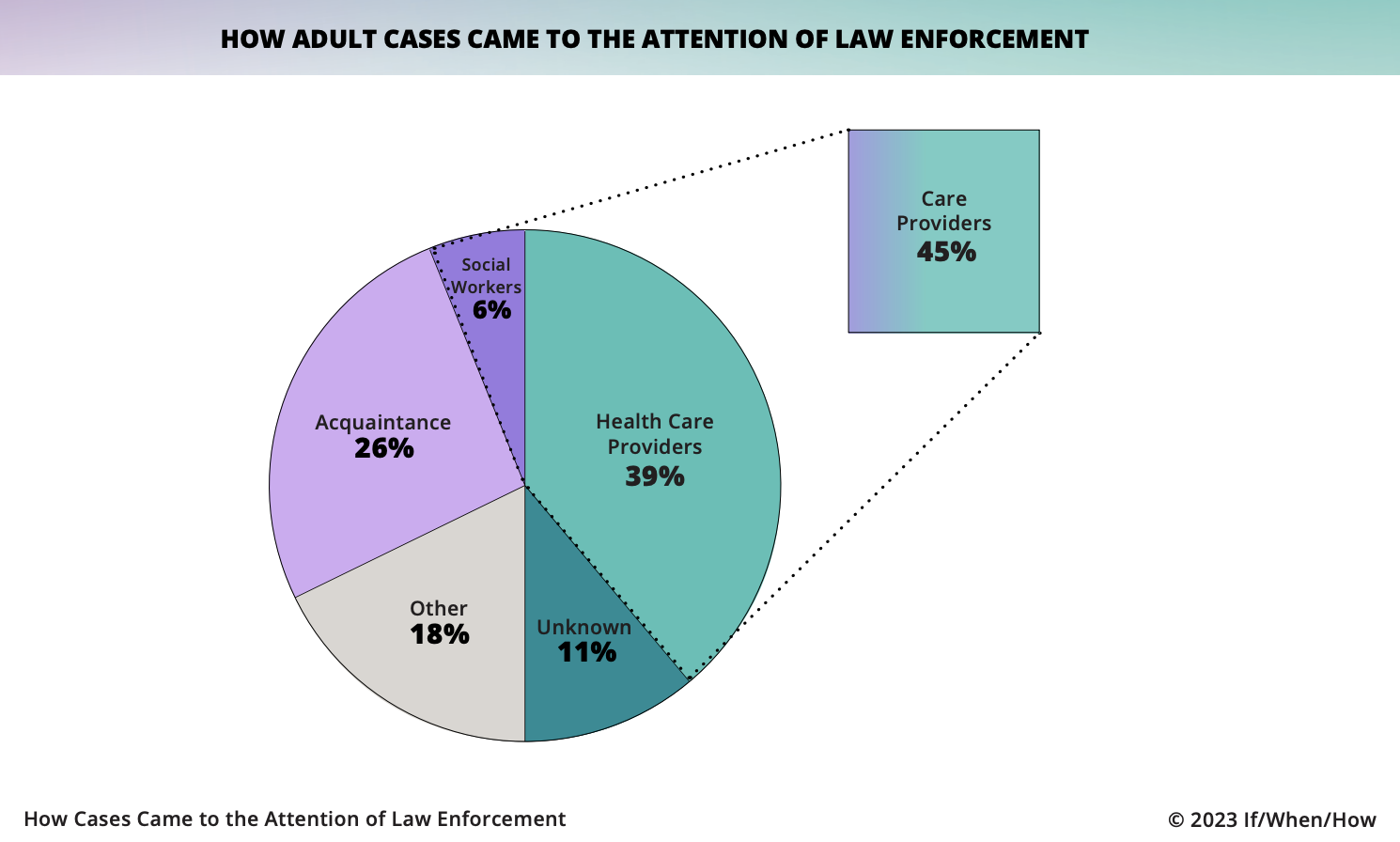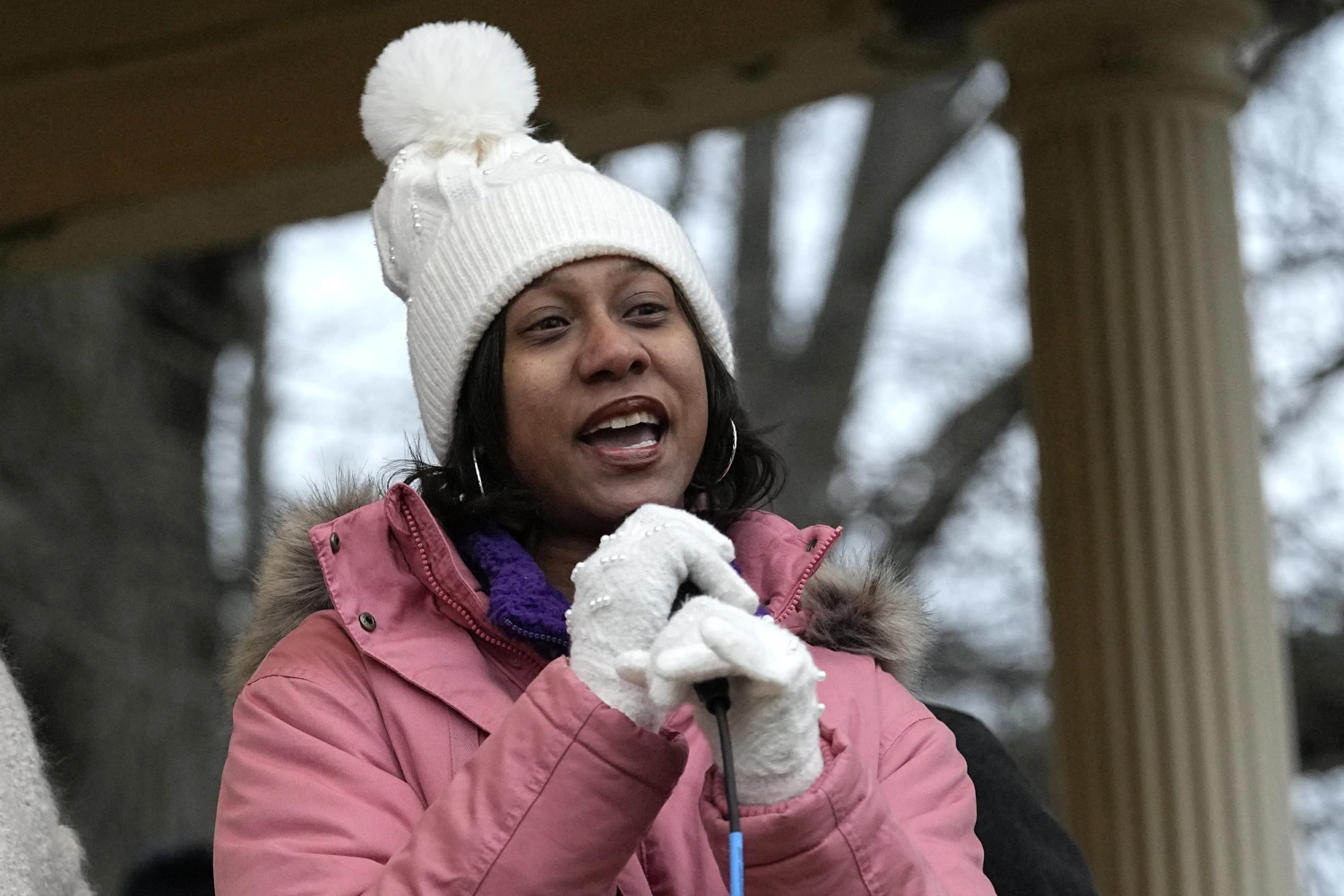By Britni Louise
Introduction
Brittany Watts, a 34-year-old Black woman from Warren County, Ohio, faced a deeply personal and painful ordeal that turned into a public nightmare. After being informed that her pregnancy was not viable at 22 weeks gestational age and having her medical care be unnecessarily delayed by the hospital administration, Brittany suffered a miscarriage at home. Alone and without guidance, she self-managed this traumatic event. Tragically, her distress was compounded when she was hospitalized for complications from an incomplete miscarriage, interrogated by the police during her hospital stay, and later arrested and charged with abuse of a corpse. Fortunately, on January 12, 2024, a grand jury declined to indict her. But the question lingers: why were there charges to begin with?
In a previous post, we explored bodily autonomy as a crucial aspect of reproductive justice. discussed the right to decide if, when and how a person wants to carry a pregnancy, or have an abortion. Bodily Autonomy also covers the right to self-determine the expression of gender and sexuality, and it means to be fully resourced in whatever choices people make about their body and their family, to be able to give informed consent in medical settings, and to be able to be safe and sustained inside their community. “True reproductive justice will only occur when all people have autonomy in making intimate personal decisions about their healthcare without risking their lives, health, families, or freedom”.
Often Overlooked Culprits: Care Practitioners Can Hinder Justice, Too
While we often spotlight institutional and legal barriers to bodily autonomy, the role of care practitioners in perpetuating harm is less examined. By uncritically acting as state agents, healthcare professionals can create barriers and police bodies and actions, aligning with conservative agendas. This includes social workers penalizing colleagues for gender-affirming care, abortion funds imposing unnecessary restrictions, or doctors testing women’s blood for abortion drugs after miscarriages. A glaring example is the nurse who called the police and reported false information on Brittany Watts for her handling of a miscarriage – an action steeped in racial bias that demonstrates a lack of understanding and empathy.

The history and current state of policing in the U.S. are deeply entangled with the country’s racist roots, showcasing early examples of reproductive oppression and extending the reach of policing far beyond traditional law enforcement. This legacy is evident in the South and parts of the Midwest, where Black and Indigenous communities particularly have been subjected to a history of vigilante violence—through slave patrols, forced sterilization, Native Residential Schools, lynchings, and other forms of extra-legal actions. These actions were not just random acts of violence but were supported by societal norms and institutions that viewed the control and surveillance of our communities as a duty of the ‘upstanding’ citizens to support their state. This history is important to understand the full context surrounding abortion and pregnancy criminalization.
This tradition of societal policing extends into modern healthcare practices, where care practitioners sometimes assume roles akin to that of the police, especially in the context of reproductive rights. The case of Brittany Watts, who faced legal repercussions for a miscarriage, is a stark example of how healthcare settings can become arenas for the policing of bodies, echoing the broader societal belief that certain bodies need to be regulated and controlled. U.S. hospitals and clinics are already alarmingly policed spaces, and for birthing people especially, it can feel like a reproductive warzone!
In other words, the involvement of care practitioners in surveilling and policing patients’ bodies, in matters as personal as reproductive health, reflects a broader problem of policing practices, societal attitudes, and systemic racism against marginalized groups. This approach not only violates individual rights but also perpetuates a cycle of harm and criminalization, and is a public health concern at the foundation of equitable and compassionate healthcare. It is a stark reminder of the need for a change that recognizes and respects the autonomy and dignity of every individual, particularly in matters as personal and fundamental as reproductive health.
Brittany’s story is heart-wrenching. She navigated her miscarriage alone, dealing with the physical and emotional aftermath without support. The subsequent interrogation, arrest, and charges added layers of trauma to an already devastating experience. The decision to not indict her is a relief, yet it doesn’t erase the injustice of her initial treatment.
Brittany In Her Own Words:
While Brittany has since been cleared of all charges, we still cannot ignore the reality: she should have never been criminalized in the very first place. In Brittany’s own words, she said that she felt “frustrated” and “ignored”, and that the nurse who was there comforting her turned out to be the one who caused the criminalization in the first place:
“The nurse comes in and she’s rubbing my back, and talking to me and saying ‘everything‘s gonna be okay’. Little did I know, the nurse that was comforting me… was the one who called the police. I never said… I didn’t want my baby. It just makes me angry that somebody would [try] to make me seem so callous and so hateful”
Brittany’s story is unfortunately relatable for so many Black birthing people, who have their autonomy over their pain, their voices, and their bodies completely denied at the hands of care workers and police. What Brittany describes is the unique experience of being caught in a web of reproductive legal chaos. In her interviews since the situation, she stands resilient, and is fortified in the radical belief that no one should have to go through what she endured:
“I don’t want any other woman to go through what I had to go through. There are no laws behind what you are to do in this situation… Now that the charges have been dropped, I’m ready to get to work, making sure that the laws are changed, and people are educated on what to do for something that happens all the time.”
As her lawyer put it, “She was painted as a young, unmarried Black woman that did not comply with their orders to keep waiting, and they weaponized the police.”
Brittany Watts Deserves A New World!
Brittany’s case is a stark reminder of the invasive and harmful ways in which individuals’ reproductive choices and experiences can be policed and judged. It underscores the need for a total paradigm shift in how we view and interact with such personal matters, especially reproductive healthcare choices. To truly honor bodily autonomy, sometimes the best action is inaction – to mind your own business and allow individuals the dignity and respect to navigate their reproductive health and decisions without unsolicited interference or judgment.
For true reproductive justice, we need to create a world where stigma, criminalization, and policing have no place in healthcare or medical facilities.
Let Brittany Watts’ story be a lesson and a call to action. It’s time to reevaluate our roles, both personal and professional, in upholding true reproductive justice. We must strive to create a world where individuals like Brittany can make intimate decisions about their healthcare in peace and safety, free from the fear of undue scrutiny and legal repercussions.
Please consider donating to your local abortion fund, like ARC-Southeast here in the South, or the Ohio Abortion Fund in honor of Brittany Watts. Abortion funds and reproductive justice organizations are vital not just for people seeking abortion, but for protecting the bodily autonomy and rights of all birthing people. We advocate for someone’s right to have a child, to not have a child, and to raise their families in safe environments; this includes advocating for an end to the policing, criminalizing, and targeting of pregnant people!
